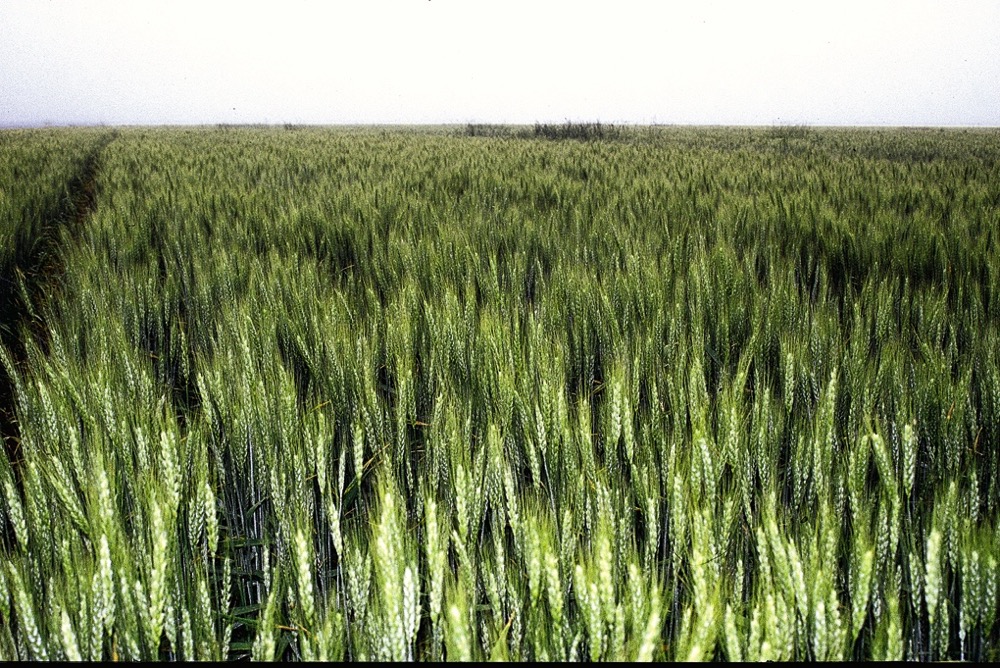Good yields expected in Western Canada, questions in Ontario
By OrganicBiz
| 4 min read

<p>Above-average temperatures continuing into August are a concern for winter wheat growers in Ontario. Photo: File</p>
By Adam Peleshaty
Glacier FarmMedia staff
[UPDATED: Aug. 5, 2022] With this year’s crop being devoid of the widespread drought seen last year in Western Canada, as well as the start of harvest in the United States, organic crop prices in the region are declining.
- Read more: Organic price quotes: Late July
However, according to Scott Shiels, grain procurement manager at Grain Millers Inc. in Yorkton, Sask., prices are not coming off as much as conventional crops, resulting in slightly higher premiums.
“Premiums are probably a little bit better than they were at the height of the market when we had conventional oats up to C$10 or C$11 (per bushel) and C$16/bu. for organic,” Shiels said. “But premiums are back to nearly double, so right where they should be…Stocks are tight enough that I don’t think we’re going to see a big drop in pricing. It could slide a little bit at harvest, which it tends to do.”
There are decent acres in the ground and other than being late, the crop looks pretty good. – Scott Shiels
He added that buyers are standing pat and may continue to do so for the next month, paying attention to prices and crop conditions before making any purchases.
“For us, organic oat acreage is good. There are decent acres in the ground and other than being late, the crop looks pretty good,” Shiels said. “It’s nice that we’ve got a crop coming where we don’t have to see so (many imports from the U.S. and Europe).”
Richard Reimer, a Winnipeg-based commodity specialist for Grasslands Brokerage & Consulting Ltd. in Regina, believes that yields for this year’s organic crops in Western Canada will be better than last year’s with decent quality. Still, he doesn’t expect a bumper crop.
“The overall consensus is that there should be a decent crop. Not a great crop, but there will be more than there was last year,” he said, adding that he expects organic cereal prices to come down.
However, Grasslands chief executive officer and principal broker Sandy Zielinski added that some crops in Alberta suffered hail damage, while those in southeast Alberta and southwest Saskatchewan are struggling with drought conditions.
“The concern is that the crop is at most average and for the most part, the farther east we move, we’re seeing concerns with late seeding because of too much rainfall,” Zielinski, who also founded the firm, explained.
She added that while immediate demand for organic crops has slowed down as the harvest approaches, the overall demand remains strong.
Organic barley and organic rye, the demand has really, really dropped off. – Sandy Zielinski
“With the exception of some specialty commodities and organic feed barley, we’ve seen the organic market maintain its strength throughout the past few years. The demand for lentils has started to strengthen again. Oats, wheat and flax have always maintained their strength.
“But organic barley and organic rye, the demand has really, really dropped off. Hopefully, we see those come back up in the next year or so,” Zielinski said, adding that she believes organic yellow pea prices to rise and lentil prices to fall.
Above-average temperatures continuing into August are a concern in Ontario, just as winter wheat crops start to come off in the province.
“It has been a dry July in most areas and additional rain is still required,” said Kim Mayer, sales representative for The Andersons in Blenheim, Ont. “Growers are being cautious as they want to insure what they have planted is going to make it to harvest. The early part of August is calling for heat, so (we’ll) keep our fingers crossed for good precipitation as well.”
Rob Wallbridge, agronomy sales lead at SureSource Commodities headquartered in Petrolia, Ont., said that while winter grains are yielding well so far, drought conditions in parts of the province are a pressing concern.
“Corn and soy crops are highly variable,” he said. “With the exception of eastern Ontario, most of the province has been in drought conditions. Recent storms have brought relief to many areas, but it’s been highly variable. Corn yields will be a big question mark.”
*Update: Rob Wallbridge’s designation as president of the Organic Council of Ontario was removed and the location of SureSource Commodities was corrected.


